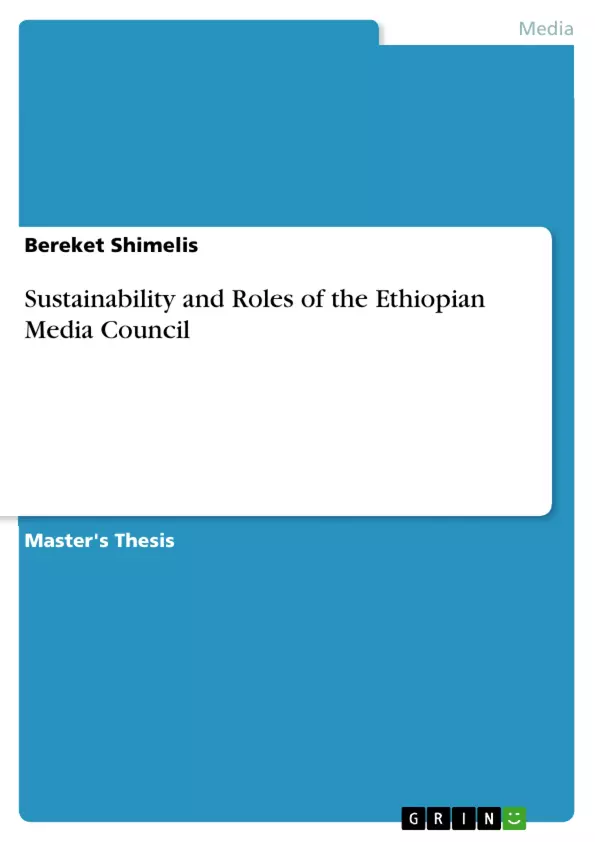The purpose of this study was to examine sustainability and the roles Ethiopian media council (EMC) plays in addressing the issues the media faces in Ethiopia. In order to assess the sustainability and roles of EMC, the study examined determinant factors of sustainability and success of the council. The study employed mainly qualitative, in-depth interview and complemented by quantitative, structured questionnaires, research methods. Data were thematically analyzed based on related literature reviews, in-depth interviews, and findings from questionnaires. The social responsibility theory remains central in guiding this study. The study revealed media community do not reach consensus on the roles of EMC plays in the industry because a clear understanding and explanation of the council role was not given. The result showed EMC is not independent (from government and media proprietors) to deal fairly with complaints and to secure public trust and confidence. The findings also indicated that the council does not bring the entire media platform (online & offline) because of this it will be difficult for the EMC to enforce a code of conduct. In addition, government interference, lack of finance, lack of commitment and cooperation, media polarization, conflict of interests and distrust among media society are major challenges for the EMC in promoting and sustaining freedom of expression and media freedom. Based on the findings of the study, recommendations have been forwarded.
Inhaltsverzeichnis (Table of Contents)
- Introduction
- Literature Review
- Theoretical Frameworks
- International Experiences
- Ethiopian Media Context
- Research Methodology
- Research Design
- Population and Sample
- Data Collection Methods
- Data Analysis Techniques
- Presentation and Analysis of Data
- Understanding Roles of EMC
- Challenges and Recommendations
- Conclusion and Recommendations
Zielsetzung und Themenschwerpunkte (Objectives and Key Themes)
This study aims to examine the sustainability of the Ethiopian Media Council (EMC) and the role it plays in addressing the challenges faced by the media in Ethiopia. The research explores the factors that contribute to the council's success and identifies key areas for improvement.
- The sustainability of the EMC in the Ethiopian media landscape
- The effectiveness of the EMC in promoting media freedom and freedom of expression
- The challenges faced by the EMC in fulfilling its mandate
- The perceptions of media professionals and stakeholders regarding the EMC
- Recommendations for enhancing the effectiveness of the EMC
Zusammenfassung der Kapitel (Chapter Summaries)
- Introduction: This chapter introduces the research topic, outlines the objectives and significance of the study, and provides a brief overview of the Ethiopian media context.
- Literature Review: This chapter examines relevant theories and international experiences related to media councils, media regulation, and freedom of expression. It also explores the specific context of media development in Ethiopia.
- Research Methodology: This chapter details the research design, population and sample, data collection methods, and data analysis techniques employed in the study.
- Presentation and Analysis of Data: This chapter presents and analyzes the data collected through interviews and questionnaires. It examines the perceptions of media professionals and stakeholders regarding the roles and effectiveness of the EMC.
Schlüsselwörter (Keywords)
The main keywords and focus topics of the text include: media council, sustainability, media freedom, freedom of expression, Ethiopian media, media regulation, media ethics, media responsibility, government interference, stakeholder engagement, media development, and social responsibility.
- Arbeit zitieren
- Bereket Shimelis (Autor:in), 2017, Sustainability and Roles of the Ethiopian Media Council, München, GRIN Verlag, https://www.grin.com/document/372372



